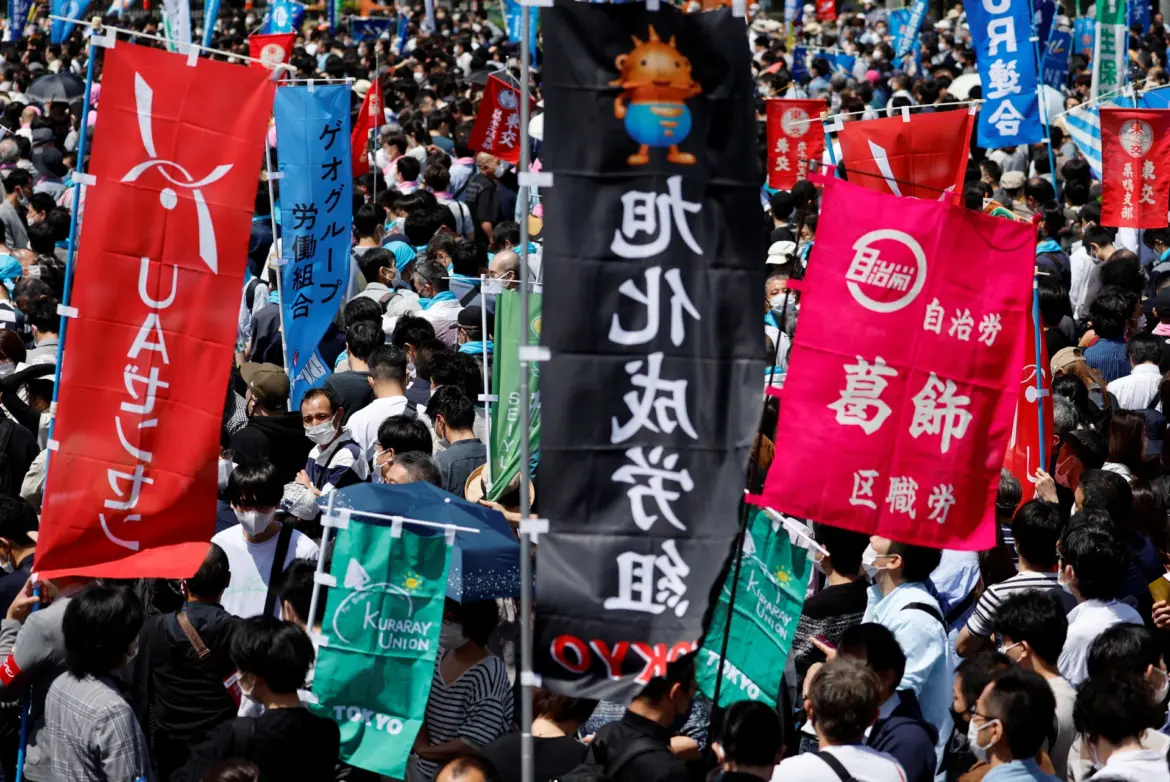Sustained wage growth remains a key focus for the Bank of Japan, seen as essential for justifying its continued policy tightening
[TOKYO] Japan’s largest labour union federation, Rengo, will keep seeking at least a 5 per cent wage hike in next year’s pay talks, as new Prime Minister Sanae Takaichi attempts to keep the country’s wage momentum going.
In negotiations starting later this year, Rengo will seek total pay increases of 5 per cent or more, including a 3 per cent rise in base salary, according to goals clarified in its basic policy framework on Thursday (Oct 23). A year ago, the annual talks began with the same targets, ultimately delivering average gains of 5.25 per cent overall for 2025. The goals will be officially confirmed in late November.
If Japan cannot keep up its wage hike momentum, that has implications for both Takaichi’s tenure and the central bank’s policy path. As inflation continues to hit households, a lack of real wage growth will likely feed into further discontent among voters, while the Bank of Japan (BOJ) may struggle to maintain its policy tightening path.
Although the union group secured the largest nominal pay increases in more than three decades in its latest negotiations, the nation’s real wages have not been keeping up. They grew from the previous year in only two of the past 12 months, hit by persistent inflation.
Earlier this week, Takaichi instructed her Cabinet to compile an economic package that will include measures to boost wage growth and ease the pain from rising prices. The plan will likely feature strengthening the earning capacity of smaller firms and promoting labour-saving investment, according to the order.
Growth Strategy Minister Minoru Kiuchi, who is overseeing the economic package, said on Wednesday that the government must continue to support households until real wages rise adequately.
BT in your inbox
Start and end each day with the latest news stories and analyses delivered straight to your inbox.
A widening gap in wage gains between large companies and smaller counterparts has also been clear, signalling how wage gains peter out beyond Japan’s core firms as smaller subcontractors continue to struggle to pass higher costs on to clients. Suppliers passed on less than 40 per cent of rising costs to their customers in July, according to a report by Teikoku Databank, marking the lowest level since the data firm began conducting the survey.
For small and medium-sized businesses, Rengo aims for at least a 6 per cent pay hike, also keeping its target from the previous year. In its latest framework, the federation urged smaller labor unions to review the results of the past few years and push for further improvements. Last year, smaller firms achieved average wage gains of 4.65 per cent under the same goal.
Sustained wage growth remains a key focus also for the BOJ, which sees rising pay as essential to achieving a virtuous economic cycle that would justify its continued policy tightening. Governor Kazuo Ueda said earlier this month that “the mechanism by which wages and prices rise moderately will continue”, reaffirming that the central bank will keep raising rates gradually if the economy and prices move as projected.
SEE ALSO
The central bank meets next week, with only 10 per cent of surveyed economists expecting a rate hike.
Despite calls from both the government and unions, several challenges loom over the next round of wage talks. One of them is the higher tariffs imposed by US President Donald Trump, which have squeezed exporters’ profit margins.
With heavier US duties, the outlook for the auto sector appears bleak, a worrying sign for an industry that is typically a bellwether for the annual wage talks. Japanese automakers have cut North American car prices by about 20 per cent to absorb the added costs, according to the International Monetary Fund, and are facing billions in losses from the trade war, threatening their ability to adequately compensate their workers.
Amid ongoing challenges, economists broadly expect smaller wage increases in the coming round compared with the previous year. Some 36 economists see an average overall hike of 4.81 per cent in the upcoming wage negotiations, according to a survey by the Japan Center for Economic Research earlier this month. BLOOMBERG


AloJapan.com